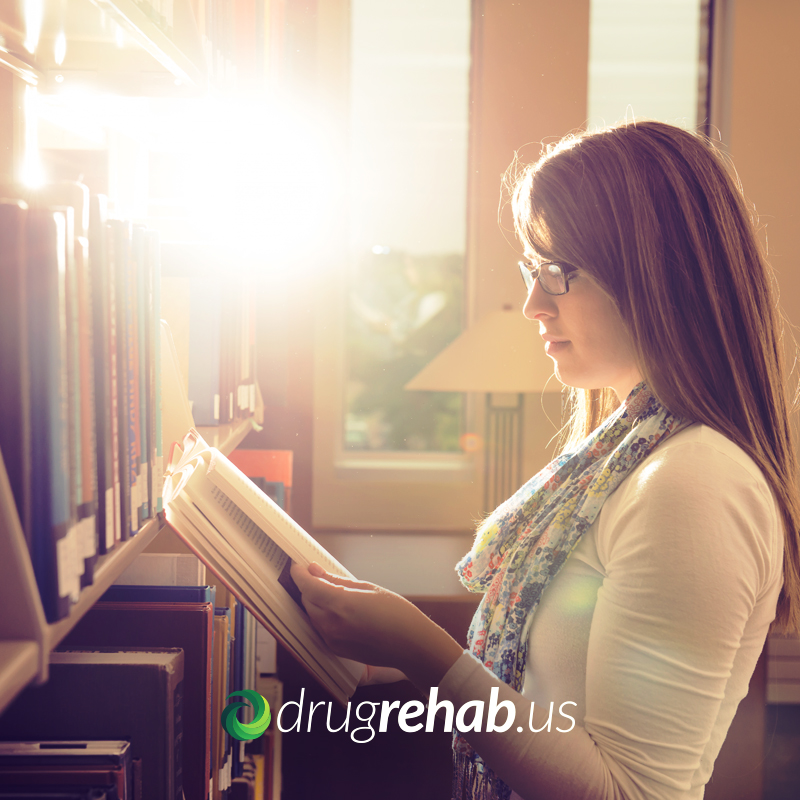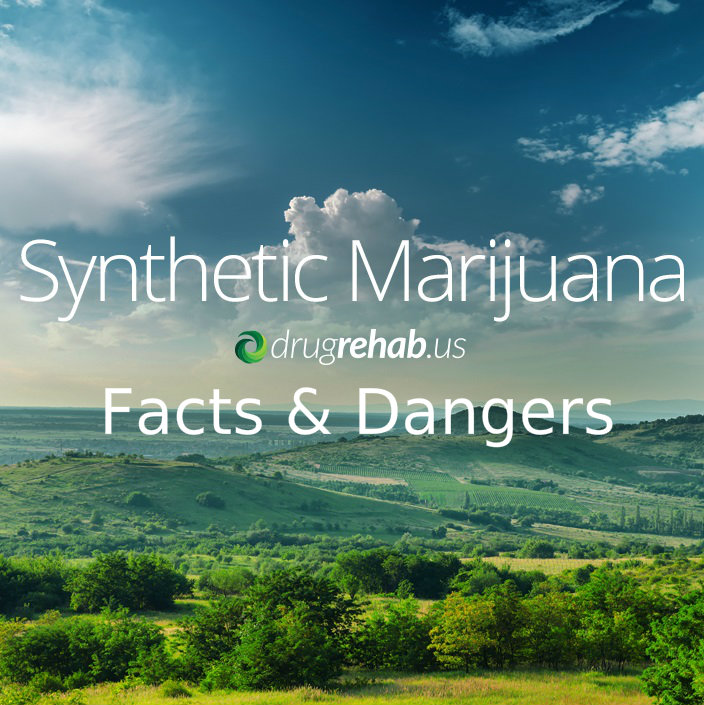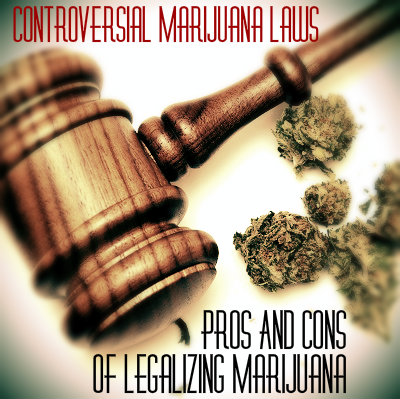06 Jul 2015
Sending Your Addicted Teen To College
Sending your child off to college can be a stressful period. This is probably the first time she has been away for longer than a stint at summer camp. There are also both realistic and symbolic transitions. She is becoming an independent adult by going off to school without you. She will be on her own to go through the academic and social experiences of college life, as well as the challenges. If your teen has struggled with substance abuse the stakes are higher than normal.
Addicted Teens
For some adults, it may seem unlikely that a young person going off to college could already be an addict. The scary truth is that teens do become addicted. The earlier they experiment with drugs or alcohol, the more likely they are to get hooked.
According to surveys, among college students participating in recovery programs on campus, the average age at which they first became addicted was 15. Common addictions in teens are to alcohol, marijuana and prescription drugs.
What To Do When Sending Your Addicted Teen To College
The following are several tips to help give your addicted teen the best shot when sending them to college and to help ease your concerns.
Check Out The Party Schools
You may be tempted to insist that your teen stay home and go to community college, and that might be the best choice. But if you both feel she is ready for the campus experience, make your selection carefully. You can easily find rankings of the biggest party schools in the U.S. These are best avoided.
In fact, you can find rankings that show you the opposite: the most sober schools. Brigham Young University, the Mormon-associated school in Utah, regularly tops this list. There are plenty of choices in schools that pride themselves on taking a sober stance. Of course, attending such a school cannot guarantee your child will stay sober, but it can help.
Look For Sober Living Opportunities
Regardless of which college your teen chooses, investigate their living arrangements. Many colleges now offer dorms or other types of housing for students who want to be sober. In these dorms your teen will live with other students who are in recovery from substance abuse. The support system built into this type of living arrangement can be a powerful way to resist the urge to party. Living in a dorm with students that are drinking and even using drugs may be more temptation than she can handle.
Continue With Treatment
Not all college campuses will have treatment programs for addicted students, but you can set up private therapy sessions to make sure your teen has the chance to keep up with her treatment. You can also help her look for support group meetings that she can attend. She may feel strong in her sobriety going into college, but the stresses and anxiety that come with such a major life transition may send her into a tailspin. Make sure she has support and treatment options ready in case she feels she needs them.
Also be sure that your teen has access to mental health services. Many addicted students struggle with depression and anxiety as well as other mental health issues. Check with the college’s on-campus health center to see what kinds of programs they have available, including emergency mental health services.
As you gather all of this information, be sure to keep your teen in the loop. Make her a part of her own sobriety so that she can take ownership and responsibility. You can’t be there with her forever. You have to let her go and give her a chance to be independent, but you can adequately prepare her to be successful.
Read Our Other Posts On What Parents Need To Know
01 Jun 2015
The Dangers Of Mothball Abuse
Substance use and abuse among teens and young adults often includes the huffing of inhalants. This is a practice that adults might engage in as well, but it is more common in young people because of access. Many household chemicals can be used for huffing, which is the practice of inhaling fumes to get high. Young people turn to huffing because it is an easy high. One substance in your home you might not suspect could be used in this way may be in your closet. Mothballs can be used to get high and, as silly as it sounds, the dangers are not insignificant.
What Is Mothball Abuse?
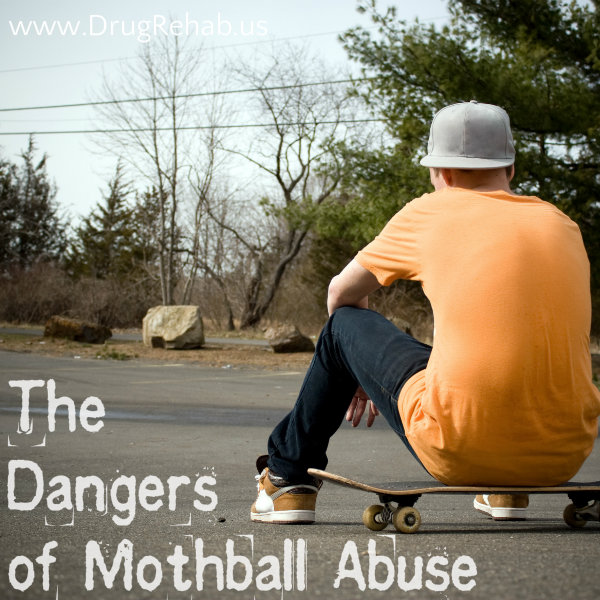 Huffing means capturing and inhaling the fumes of certain chemicals in pursuit of a high. Many products and chemicals can be used for this purpose, ranging from Freon in air conditioning units to the gases in a can of whipped cream. People who abuse mothballs typically put them in a paper bag and breathe into it for several minutes. Mothballs are traditionally made with a volatile chemical called naphthalene, but newer products use a dichlorobenzene instead, as it is less flammable. Either chemical can be huffed for a high.
Huffing means capturing and inhaling the fumes of certain chemicals in pursuit of a high. Many products and chemicals can be used for this purpose, ranging from Freon in air conditioning units to the gases in a can of whipped cream. People who abuse mothballs typically put them in a paper bag and breathe into it for several minutes. Mothballs are traditionally made with a volatile chemical called naphthalene, but newer products use a dichlorobenzene instead, as it is less flammable. Either chemical can be huffed for a high.
Mothballs And Addiction
Mothball abuse may not sound as serious as something like cocaine abuse, but inhalant abuse can be dangerous and fatal. Users can even get addicted to the high that comes with huffing. Research on addiction to mothballs, naphthalene or dichlorobenzene is limited, but we do know that inhalant use can lead to addiction. Like any drug of abuse, inhalants cause the user to get high or experience a pleasurable sensation. With time and frequent use, the brain changes in response to this high, and quitting becomes more and more difficult. Eventually the user is hooked.
Is Napthalene Addiction Dangerous For Health?
Becoming addicted to naphthalene is extremely dangerous. Even if someone doesn’t get addicted, just using this substance recreationally is risky. Both naphthalene and dichlorobenzene are harmful, toxic substances. This is why moths stay away from mothballs. When someone inhales the fumes from mothballs, he will lose coordination, develop slurred speech, become weak in the limbs, get headaches, feel nauseated and vomit. Some users may even get a scaly skin rash.
These are short-term side effects of getting high on mothballs. The long-term health effects of inhaling these substances include kidney and liver failure, anemia, convulsions, seizures and coma. Death is also possible when huffing, no matter what substance is being used. Huffing can even be fatal on the first try because the user is cutting off oxygen supply when inhaling another substance.
The dangers of abusing mothballs are numerous and serious. If you have a teenager, make sure he knows that this habit, which may seem like harmless fun, is actually quite dangerous. If you use mothballs, make sure they are locked away to prevent access. Huffing is common among teens and an issue of which all parents should be aware.
Concerned Your Teen Is Abusing Drugs?
Call An Elements Behavioral Health Counselor Now!
16 Apr 2015
Yes, People Really Do Get High On Mothballs
It sounds ridiculous, but it’s true: there is such a thing as mothball abuse. It’s mostly abused by teens, which are at the right age for trying stupid things. As silly as it seems to be sniffing the fumes coming from mothballs, the risks and the dangers are real and serious.
Teens that engage in this behavior are at risk for some pretty worrying health problems. If you have a teenager at home and mothballs in the closet, bring up the issue and make sure the consequences of abusing this household product are serious.
The Mothball High
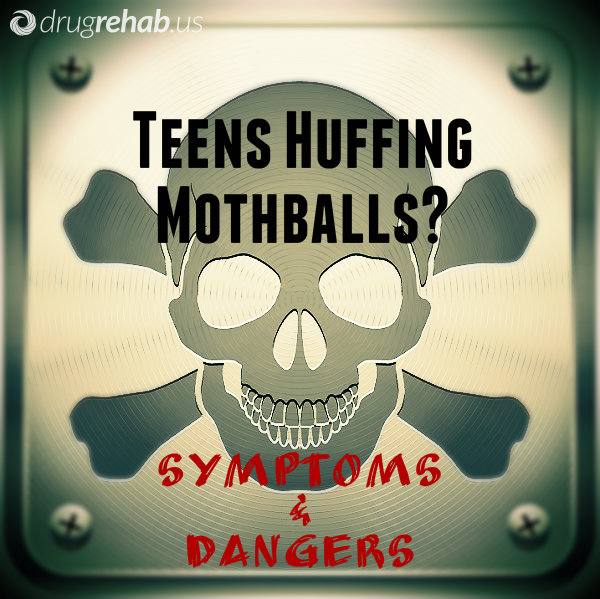 Teens are famous for coming up with new and inventive ways to get high. These strategies typically involve some household product because access is easy. Huffing is a common way for teens to get high, and most parents don’t even think about it. Huffing refers to the practice of inhaling fumes from a household product in order to get high. The list of inhalants used is long and includes paint, nail polish remover, hairspray, scented markers, correction fluid and even mothballs.
Teens are famous for coming up with new and inventive ways to get high. These strategies typically involve some household product because access is easy. Huffing is a common way for teens to get high, and most parents don’t even think about it. Huffing refers to the practice of inhaling fumes from a household product in order to get high. The list of inhalants used is long and includes paint, nail polish remover, hairspray, scented markers, correction fluid and even mothballs.
Mothballs are solid balls that give off an odor that deters moths. They protect your clothes from the insect. The odor comes from a substance in the mothball that turns from a solid into a gas that can be inhaled. Teens sniff mothballs like a drug to get high. The substance that gives them this high is either naphthalene or dichlorobenzene. Older mothballs tend to contain the former, while newer products have the latter. Both can get you high and are harmful to inhale.
Is Napthalene Addiction Dangerous For Health?
Huffing mothballs is dangerous. Most teens won’t do it often enough to get addicted, but addiction is possible. What is more likely is that teens inhaling the fumes will experience health problems.
Symptoms Of Inhaling Mothballs
The most common and immediate symptoms of inhaling mothballs include the following:
- lightheadedness and dizziness
- nausea
- vomiting
- stomach pains
- headaches
- eye and airway irritation
- slurred speech
- loss of coordination
- mental impairment
- weakness in the limbs
- scaly skin rash
Long-term Consequences Of Mothball Abuse
There are also some very serious long-term consequences of mothball abuse. Teens who huff mothballs several times put themselves at risk for excessive:
- weight loss
- anemia
- liver failure
- kidney failure
- and even seizures and coma
The effects of abusing mothballs with naphthalene are similar to those with dichlorobenzene. Dichlorobenzene is less toxic than naphthalene, which is why newer mothballs are made with it, but it can still cause the same symptoms and the same lasting damage to the body.
Talk To Your Teen About Mothball Huffing…NOW!
Mothballs made the news several years ago when teenagers in France were hospitalized for huffing them. The twin sisters were seriously impacted by their drug habit and one of the two needed a full six months to recover.
While cases like these bring exposure to a dangerous practice like mothball huffing, the story disappears before long and people forget.
Be aware that your teen might experiment with mothballs. Talk to your teen about the dangers and help him understand the risk of engaging in this serious type of drug abuse.
16 Feb 2015
Drug-Testing Your Teen – Can You And Should You?
Drug use is a big problem among young people today. They have more access than ever before and as a parent you have reason to worry. No teen is immune to the pressure to use drugs, not even the star athletes or the academic achievers. Doing your best to prevent your child from abusing drugs is important. You have a big influence over him and the choices he makes. Should your preventative measures include drug tests? There are plenty of drug tests on the market and you can do home tests or have your child tested at your doctor’s office.
The Dangers Of Drug Use In Teens
As a responsible parent you should be concerned about drug use, even if you feel like your teen would never make that choice. Teens face a lot of pressures and many turn to drugs, even the ones you would never suspect of doing so.
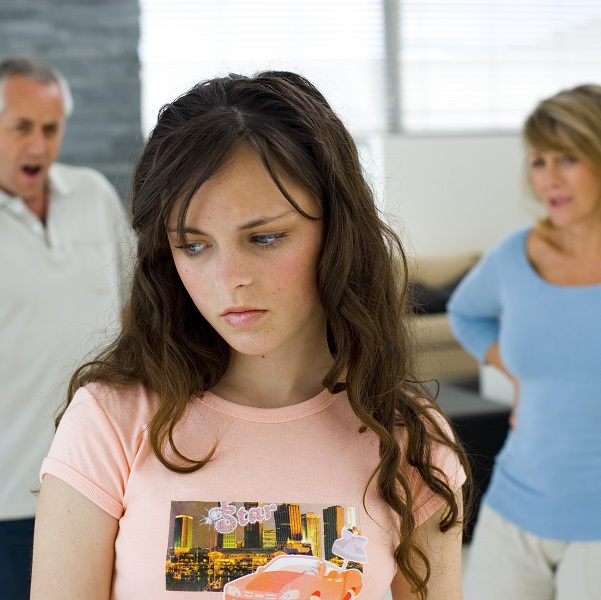 And the dangers of using drugs are great for young people. They run the risk of developing a life-long habit. They may have accidents while under the influence and hurt or kill themselves or others. Drug use may lead to psychiatric problems, antisocial behaviors, and poor academic performance. With so many potential negative consequences, it might seem like drug testing is the only way to truly protect your child.
And the dangers of using drugs are great for young people. They run the risk of developing a life-long habit. They may have accidents while under the influence and hurt or kill themselves or others. Drug use may lead to psychiatric problems, antisocial behaviors, and poor academic performance. With so many potential negative consequences, it might seem like drug testing is the only way to truly protect your child.
Drug Testing: The Options
You can find home drug testing kits easily online or at a drugstore and most of them use urine to test for the presence of drugs. These home kits have some limitations, though. Most urine tests don’t detect all illegal drugs, including party drugs like LSD, ecstasy and ketamine. They also fail to detect inhalants, a common way that teens get high on household chemicals, steroids and alcohol. These tests are also imperfect in their accuracy. They can produce both false positive and false negative results. Your other option, which is likely to produce better results, is to have a test done by your pediatrician and analyzed in a lab.
Should I Drug Test My Teen?
Whether you choose to use drug testing as a preventative measure is personal. The American Academy of Pediatrics (AAP) strongly opposes using involuntary drug tests. In other words, if you choose to go this route, make sure your teen understands your reasoning and agrees to be tested. Forcing your teen to be tested for drugs can be damaging to your relationship.
The AAP also believes there are better ways to prevent drug use or to monitor a teen who is displaying signs of possible drug use. Start by talking to your child about drugs. Talk about how harmful they can be and how your teen can say no to friends who are using. Make it clear that you will not tolerate drug use and why. Talking openly is a powerful way to stay connected with your child and to influence the choices he makes.
One situation that may be more appropriate for drug testing is if you have a teen that has been through a treatment program for substance abuse. It may be an important part of his recovery to test him regularly. That way you can catch a relapse before it gets out of hand. If he is serious about his recovery, he should agree to the testing.
Drug use in teens is a scary situation to contemplate. Young people are vulnerable to peer pressure and they can suffer so much damage from drug use. Do your best to influence your teen’s choices and to monitor his behavior for signs of drug use. Just remember that you are not a police officer. You are a parent who cares about your child.
Afraid That Your Teen Is Abusing Drugs & Don’t Know What To Do?
Call Us Now – We Are Here To Help You!
27 Oct 2014
Synthetic Marijuana Facts And Dangers
Of all the arguments against decriminalizing cannabis and the rise in popularity of e-cigarettes, the one that many have failed to discuss is the possibility of increased access to synthetic marijuana. This lab-produced cannabis has been popular with young people for many years. Although law enforcement has cracked down on synthetic products and lawmakers have tried to outlaw them, synthetic marijuana is making a comeback. Everyone, especially parents of teens and pre-teens, need to know about this drug and how dangerous it is.
What Is Synthetic Marijuana?
Synthetic marijuana, or synthetic cannabis, is a product made in a lab. It is not natural, but it is supposed to mimic the natural cannabis plant. Cannabis contains thousands of compounds, called cannabinoids, which produce the mind-altering effects people seek when smoking pot. There are many ways in which these compounds can be mimicked with lab-made compounds. Many of the fake compounds have been ruled illegal, but the manufacturers can still come up with more options, keeping their products technically legal.
Synthetic Marijuana Dangers
One of the main reasons these synthetic products are so dangerous is because the user never knows exactly what he is getting. Because the product changes so much, it is impossible to know what is in it. In addition to the cannabis-like compounds, there may be any number of other chemicals, and even herbs used to look like dried marijuana. Users have been made very ill from using synthetic products, while some have become addicted and some have even died.
Side Effects Of Synthetic Marijuana
The side effects of synthetic marijuana vary because of the unknown composition of the products, and they can range from mild to severe to fatal. Some of these side effects include:
- agitation
- severe anxiety
- paranoia
- vomiting
- nausea
- high blood pressure
- rapid heart rate
- muscle spasms
- tremors
- seizures
- hallucinations
- psychosis
- suicidal thoughts
- heart attack
- death
Synthetic cannabis has also been seen to cause withdrawal symptoms in frequent users and it can become addictive.
While the use of synthetic marijuana products has dropped overall as laws changed to try to outlaw them, they are making a comeback. One reason may be the rise in popularity of e-cigarettes. These are electronic devices that allow users to “vape” rather than smoke nicotine. They were designed to help smokers quit, but are increasingly being abused. E-cigarettes use vials of liquid with dissolved nicotine. Users exhale only water vapor. Those abusing them are using synthetic cannabinoids in the vials instead of nicotine in order to get a high. The scary thing is that the exhalation doesn’t smell like anything. The user can get high anywhere without anyone realizing it.
Latest Concern Of Synthetic Marijuana
Synthetic marijuana for e-cigarettes is just the latest concern when it comes to synthetic cannabis products. These products have been around for at least a decade and while their popularity was waning, teens are getting back into using them. Synthetic marijuana is no safer than it has ever been and both parents and teens need to be aware of the risks.
If You Are Concerned With Your Teen’s Substance Abuse, Call Us Now – We Are Here For You Anytime, Day Or Night
08 Oct 2014
Controversial Marijuana Laws
Americans have long debated legal recreational marijuana pros and cons, as well as the positives and negatives of medical marijuana. Never has the debate been more heated than now, when controversial laws have been passed in a number of states. More than 20 states have passed laws legalizing medical marijuana, or cannabis, while two states now allow legal recreational use of the drug.
Pros And Cons Of Legalizing Marijuana
Many people can see both sides of the issue, but it remains one that is highly controversial.
The Pros Of Recreational Marijuana
Last year, two states voted to legalize recreational marijuana: Washington and Colorado. More people in these states supported the legalization than were against it, and yet it remains highly controversial. Supporters of recreational cannabis being legal have several reasons they see the recent laws as positive.
Perhaps the biggest reason is that the states will have a new source of tax revenue. The idea is that state governments, many of which have big fiscal deficits, can regulate and heavily tax the legal pot sales. Other reasons supporters cite for legalizing the drug include greater freedoms for law-abiding citizens and a more modern attitude toward pot.
The Cons Of Decriminalizing Cannabis
Not everything about making marijuana legal for recreational use is positive. Critics have plenty to say about the new laws, probably more than the supporters. Legal marijuana poses a number of issues. The first is safety for individuals. Marijuana is a drug; it causes side effects and impairs judgment. It is also addictive and can lead to a lifelong dependence, especially with frequent use.
Legal marijuana is also a problem of public health. While individuals may now have the right to choose to use the drug, the rest of us are not able to choose not to be impacted. The most obvious risk is the possibility of impaired driving. Drunk drivers cause thousands of accidents, injuries and deaths every year. High drivers stand to cause even more.
Finally, there is the issue of the impact of legal marijuana on young people. Of all the cons for legalizing marijuana, this may be the most troubling. Although its use is to be restricted to adults, legal marijuana means that young people will inevitably have greater access to the drug. Currently, alcohol is the substance most abused by teens. This can be attributed to its legal status and ready availability. If every state legalizes pot, you can expect teens will get access to marijuana as well. The drug can cause long-term problems in young users including impaired memory and cognitive functioning.
Legalized marijuana will likely remain a controversial topic of debate throughout the country. Although two states have allowed recreational use of the drug for adults, the possible negative consequences of these moves are great. Exactly how the drug will start to effect young people and public health remains to be seen.
23 Sep 2014
How To Cope When Your Child Is An Addict
Having an addict in the family is never easy. When that addict is your child, whether a teen, young adult or fully-grown adult, the impact on you as the parent is devastating. First you feel immense guilt and pain because your child is suffering. You may also face a lack of support from your loved ones. Finally, your mental, emotional and physical health may begin to deteriorate. How do you cope with these issues after you have tried to get help for your child?
Living With Pain And Guilt When Your Child Is Addicted
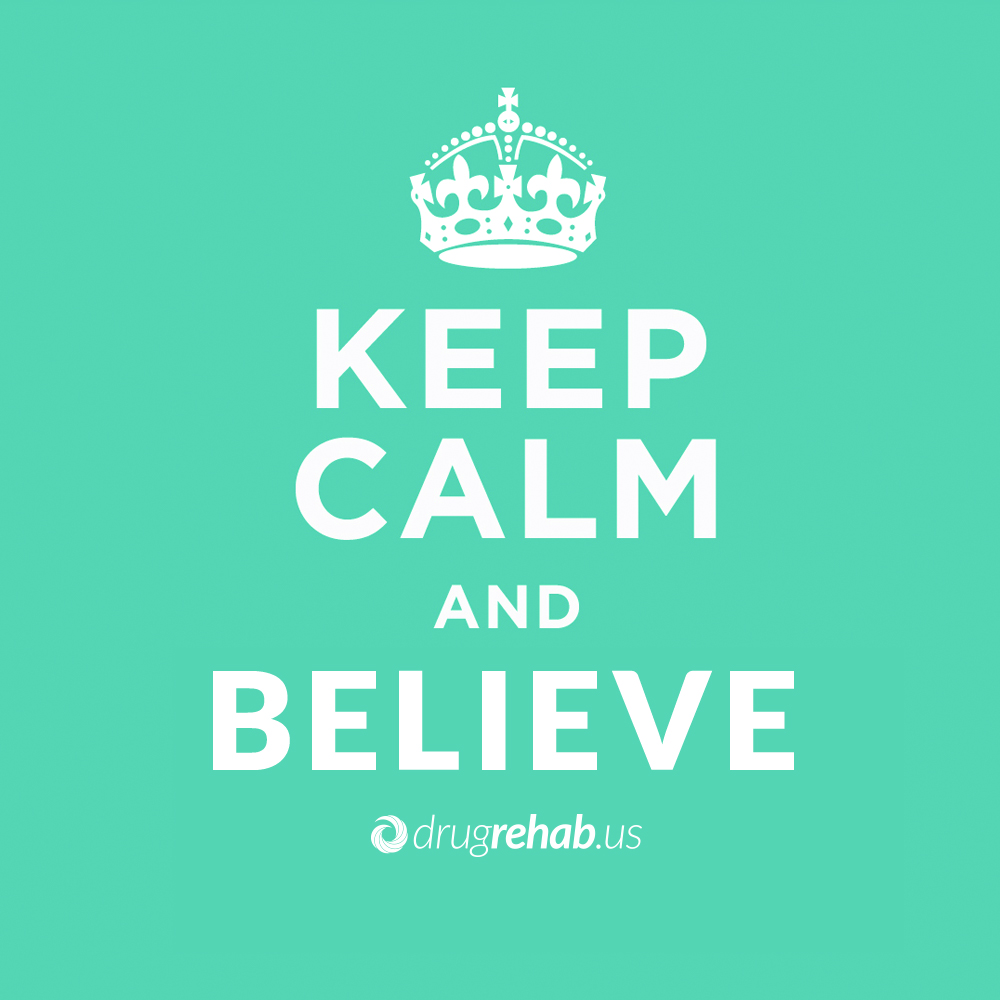 It is only natural to experience a sense of extreme guilt and feeling as if you have failed your child in some way. Seeing your child suffer can also cause you a tremendous amount of anguish and emotional pain. If you have done your utmost to help your child get into recovery, if you have expended your resources, you have done what you can. Remember that your child is capable of making decisions and his poor choices are not your fault. It is normal to still feel guilt and pain, but there are ways to cope.
It is only natural to experience a sense of extreme guilt and feeling as if you have failed your child in some way. Seeing your child suffer can also cause you a tremendous amount of anguish and emotional pain. If you have done your utmost to help your child get into recovery, if you have expended your resources, you have done what you can. Remember that your child is capable of making decisions and his poor choices are not your fault. It is normal to still feel guilt and pain, but there are ways to cope.
Realize that extreme feelings of guilt and pain are signs of a negative attachment to your child. Recognize this attachment and how it is harming you. Accept that your child makes his own choices and that you cannot force him to stop using drugs or alcohol. Focus your energy on yourself and on the positive relationships in your life. If your spousal relationship has been damaged because of your child’s addiction, work on it. Redirecting your focus will help you detach from negative and unhelpful emotions.
Getting Support For Family Addiction
A major issue that parents of addicts face is a lack of support. If your child had another kind of medical disease, like cancer, you could expect to receive all kinds of support from family and friends. Parents of addicts, however, often find their loved ones have turned away, thanks to the lingering stigma attached to the disease of addiction. Support is essential to coping, so find it where you can. Look for other parents who know what you’re going through. Support groups for loved ones of addicts can be a great resource. You might also work on those closest to you. Talk to your more supportive loved ones and explain that you need help and love.
Taking Care Of Yourself When Your Going Through The Pain Of Your Child Being An Addict
You can only help others if you are properly cared for and are well. Trying to help your child and suffering from the guilt and other negative emotions his issues have created, your own self-interests have probably fallen to the bottom of your list of things to do. You must find the time to take care of yourself if you hope to be happy again, to be able to help your child when he is finally ready for it or to re-establish a healthy relationship with your spouse. It may seem selfish, but find time to do something you enjoy, something just for you. Make the time to prepare healthy foods for yourself and include exercise or meditation in your day. These small gestures will make you better able to cope with your addicted child.
Having a child who is seriously ill is one of every parent’s worst nightmares. With the disease of addiction the feelings of helplessness and guilt can be especially powerful. If you can dissociate yourself from those negative feelings, find support and take care of your own health, you can cope with this. You will even be able to help your child when he decides it’s time to get clean.
Read More: What Can You Do When You Feel Helpless With Your Child’s Addiction? And Help Your Child Overcome Their Addiction!
If You Need Help With Your Child’s Addiction – Call Us Now – We Are Here For YOU
08 Sep 2014
Straight-A Students And Substance Abuse
Countless parents have had this internal argument: My kid is a good kid. She gets all As at school. She’s an athlete. She couldn’t possibly be using drugs or drinking, right? Unfortunately, some of those parents are wrong. Good kids abuse substances too. Teenage experimentation with drinking or drugs doesn’t always look like the stereotypical burnout. All parents should be aware that substance abuse is everywhere and know the more subtle signs and symptoms.
Teens And Substance Abuse
The good news about teens abusing drugs and alcohol is that the trend is moving downward. Fewer teens drink, smoke, or use most illegal drugs than did a few years ago. Abuse of marijuana has been rising as the perceived risk of this drug goes down. Prescription drug abuse still makes up a significant part of teen substance abuse. Although use rates are declining for most drugs, many teens are still abusing substances and suffering the consequences. Nearly one-quarter of all high school seniors report having used marijuana in the last month, while 15 percent used a prescription drug non-medically.
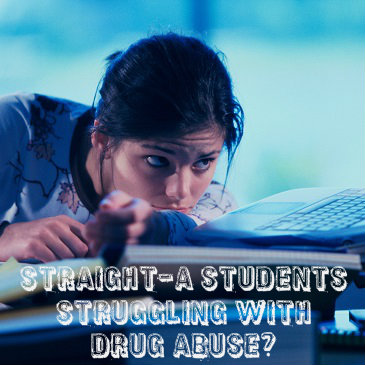 Numbers don’t lie. A lot of teens abuse substances. If you think that your teen is not using simply because she is a straight-A student or because she is popular and on sports teams, or because she is involved in several extracurricular activities, think again. No teen is exempt from the pressures that can lead to experimentation with drugs or alcohol, and many are good at hiding their substance abuse, especially from parents. Here are some of the more subtle signs to look out for in your teen:
Numbers don’t lie. A lot of teens abuse substances. If you think that your teen is not using simply because she is a straight-A student or because she is popular and on sports teams, or because she is involved in several extracurricular activities, think again. No teen is exempt from the pressures that can lead to experimentation with drugs or alcohol, and many are good at hiding their substance abuse, especially from parents. Here are some of the more subtle signs to look out for in your teen:
Teen Substance Abuse Signs
- Changes In Sleep Patterns: Drug and alcohol use impacts sleep in a number of ways. It can make someone sleep more or can lead to insomnia. Look for signs that your teen is staying up later than normal, sleeping in later than usual, or napping more frequently. Also be aware of any signs that she is often tired, such as yawning, bags under her eyes or sleeping in class.
- Missing Important Activities: If your teen is involved in a lot of activities, she may be able to drink or use drugs for a little while before it starts to impact them. Eventually, though, she will start to slide. It may be just a little bit at first. She might be late to one or two events when normally she is punctual. Maybe she decides to give up one of her less important activities.
- Physical Signs: Some of the effects of drug use can’t be covered up. Look for persistent coughing, bloodshot eyes, dilated or pinpoint pupils, an increased appetite, unsteadiness, unusually bad breath, unfamiliar smells or lethargy.
- Secrecy About Money: If your child has always been open about her money and what she spends it on, be concerned if she suddenly becomes secretive. If she doesn’t want you to see her bank account information or go through her purse, be aware that something may be up.
Good Students And Prescription Drugs
You may be right when you say that your straight-A teen would never drink, smoke pot or use street drugs to get high. What many parents of good students don’t realize is that certain prescriptions are abused for academic reasons. Prescription medications for ADHD are popular with ambitious students. These drugs are stimulants and high school and college students are abusing them in record numbers to stay awake and alert for studying and writing papers. Subtle signs of drug abuse in your teen may indicate she is using stimulants because of the pressure she feels to get good grades.
No matter how good your teen is or how successful she is in school, you cannot guarantee that she will not experiment with drugs or alcohol. Always be aware of the potential for abuse and spend time talking with your teen. Make sure she knows she can open up to you and you will be more likely to catch any problems before they go too far.


